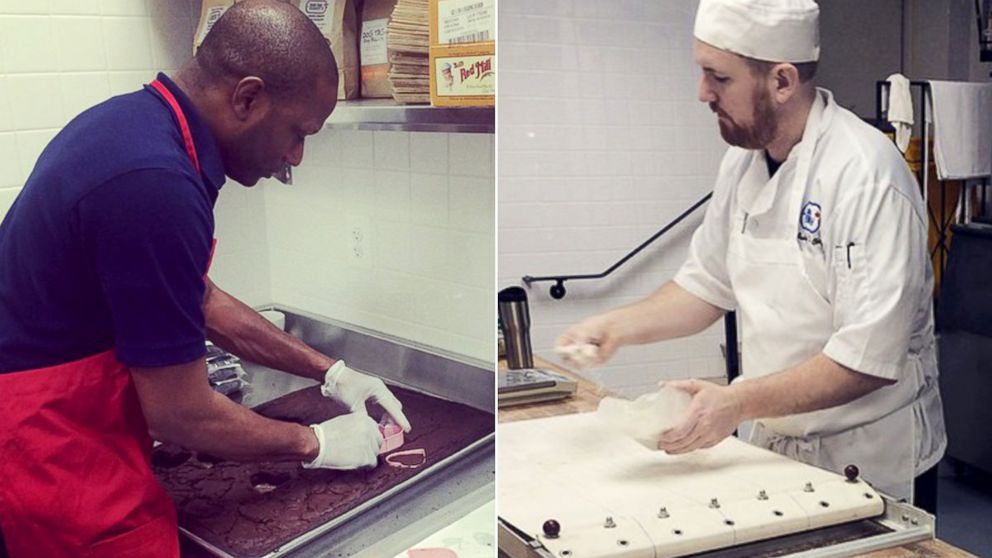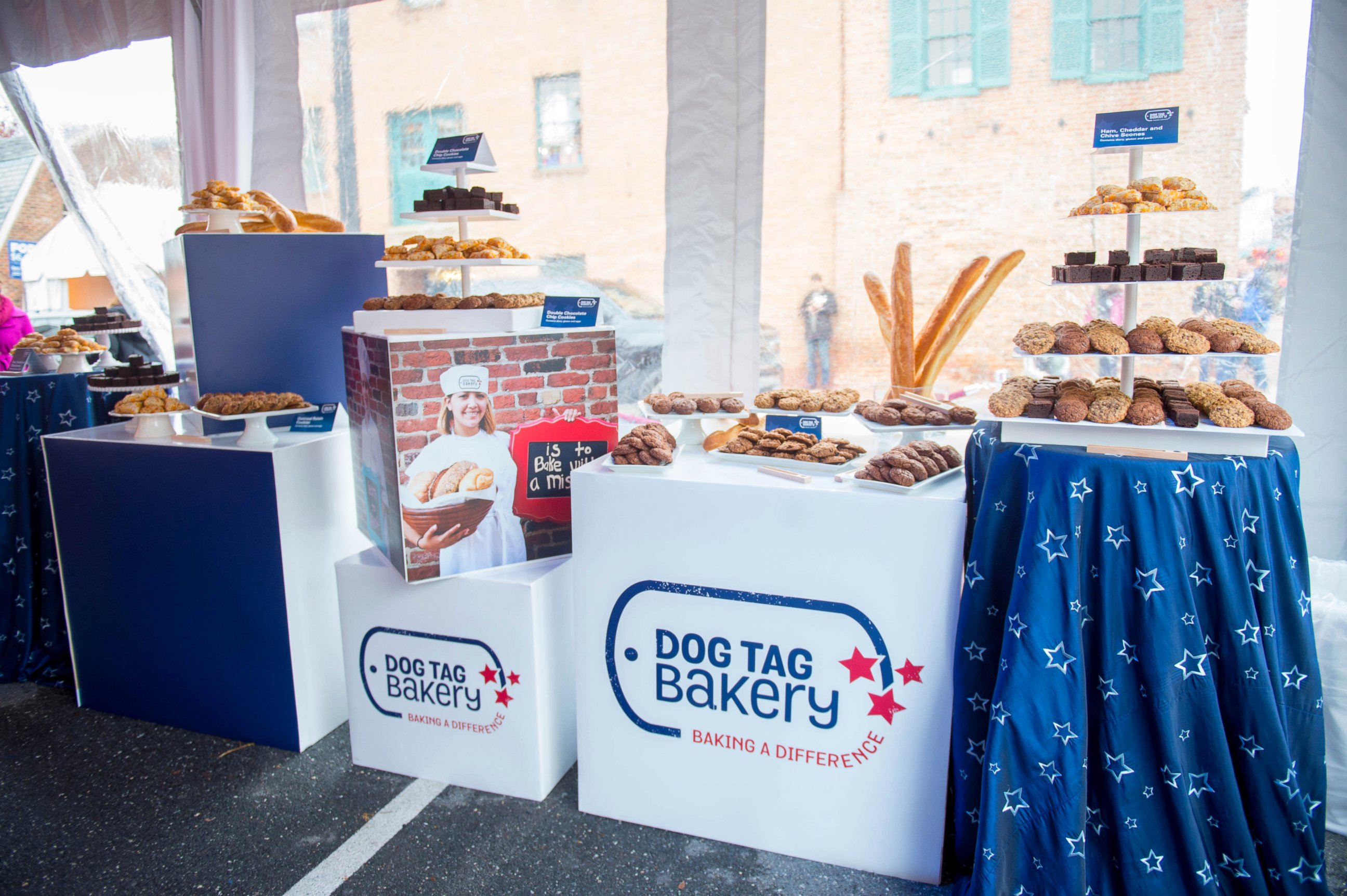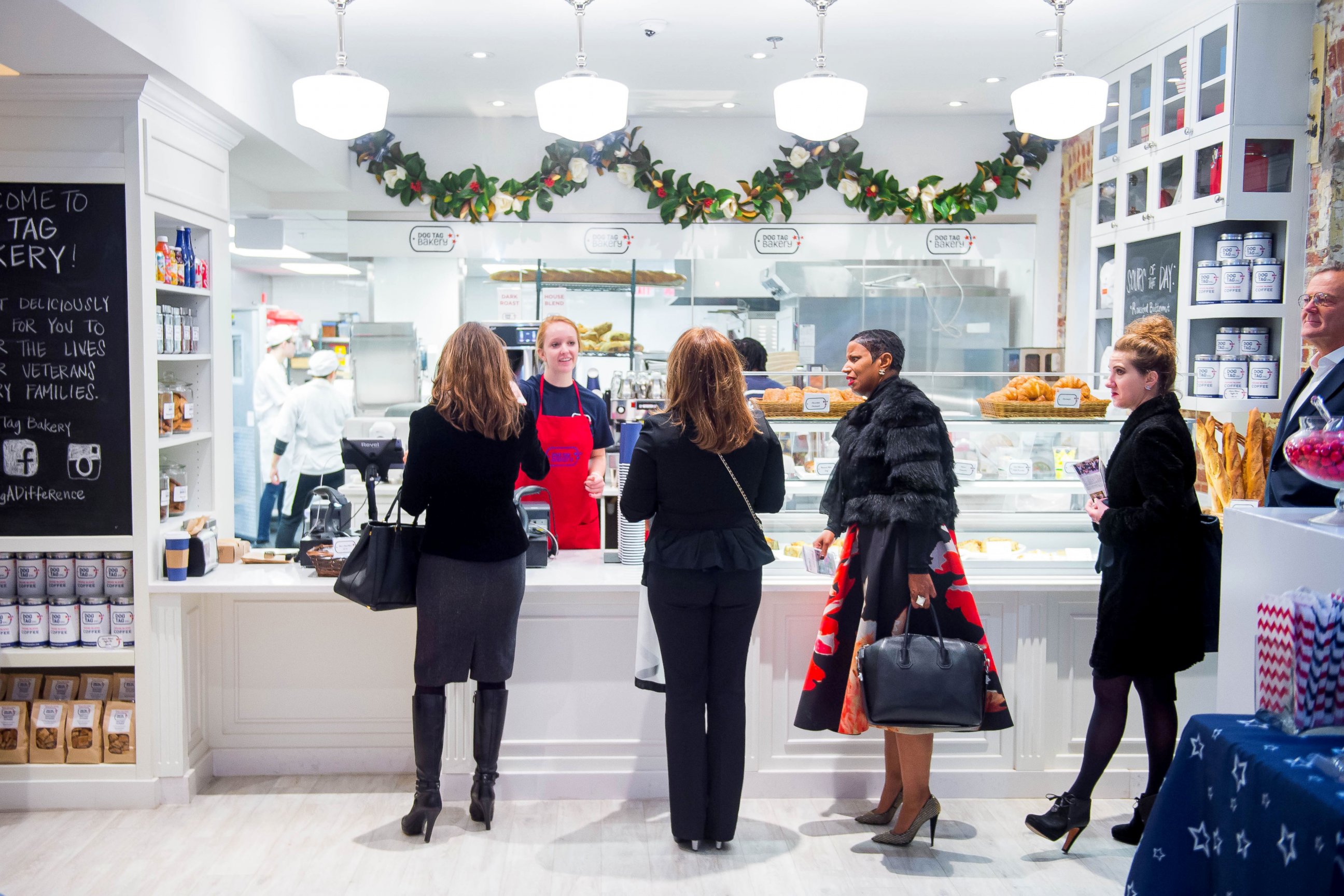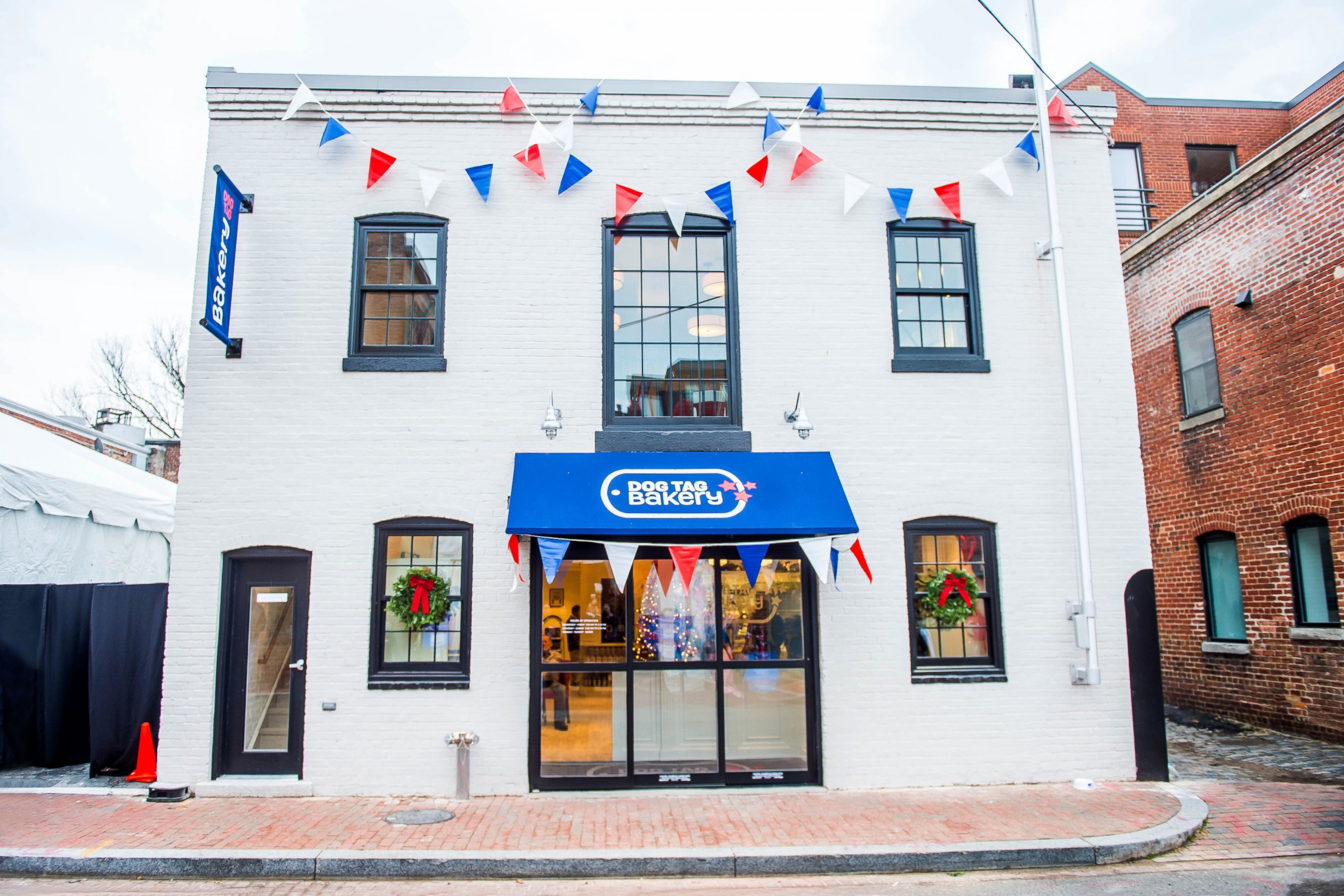How This Bakery Helps Military Vets Re-Enter the Workforce
The bakery just graduated its first class of disabled vets.

— -- Some disabled veterans are getting sick of the “disabled part.”
“We might have a ‘disability,’” retired Sgt. Maj. Sedrick Banks told ABC News. “But it’s not about your disability. It’s about your ability.”
Banks served 23 years in the military, bouncing around between eight deployments and various assignments at the White House, 82nd Airborne Division, 520th Infantry, North Atlantic Treaty Organization and more, before medically retiring after a brain injury and some physical injuries.
Despite doctors telling him it would be difficult for him to ever work again, Banks started volunteering with Mission Continues, the Wounded Warrior Project and other organizations. He began building back his mental and physical strength enough to want to go back to school, so he tried a sociology course at Strayer University.
“I found I wasn’t where I needed to be at yet, so I dropped that course,” he said.
That’s when he found Dog Tag Bakery in Washington, D.C., whose mission is to provide these still-abled veterans a roadmap to entering the civilian American workforce. Founded by Father Rick Curry, SJ and Constance Milstein, both of whom have prior baking and nonprofit experience, Dog Tag teamed up with Georgetown University’s School of Continuing Studies to create a program where disabled veterans specifically could learn the skills of a business administration certificate program through classes and running an actual bakery. Proceeds from the bakery are reinvested in the education program to pay professors’ salaries and give the veterans stipends while in the program.

“The goal is that within the program we provide the education and the opportunities to understand what it takes to run a small business with an entrepreneurial mindset and step out into the next phase of their life empowered with these tools,” Dog Tag chief operating officer Meghan Ogilvie told ABC News.
Georgetown professors teach courses on the bakery’s second floor on topics like marketing, social media, finances and more, and guest speakers such as real estate agents and bank CEO’s stop by. Students then immediately apply what they’ve learned in the bakery below. Veterans are even given mock interviewing process, which in turn led to real interviews.
The bakery first opened in November and has since graduated its first class of seven veterans – including Banks – who by completing the program received their Georgetown certificate in business administration. The first class has since moved on in various directions; one is getting his masters, another his MBA. One got a job through the program, two are interviewing and Banks now owns his own life coaching business.
Through it all, the Georgetown community has been incredibly supportive, Dog Tag general manager and veteran Justin Ford told ABC News.

“We’ve more than doubled our sales in the last couple months, we have an online store where we’re selling things like cookies, brownies and neat dog tag-related items and we just expanded our hours of operation,” he explained. “We have a ton of regulars. More than 50 percent of our business is regulars who come in almost on a daily basis. I think the community loves our mission and our product more importantly, and they’re coming back for more. We’re really excited about it.”
To staff the bakery when a class isn’t in session (the bakery is currently accepting applications for its second class to begin in June), Dog Tag employs locals to bake their scratch breads and pastries on premises.
From the start, though, Dog Tag was incredibly popular with disabled veterans, filling a need for those who have a tougher time post-military.
"I think with the veterans, when they return from active duty sometimes they have a more challenging time transitioning their careers from military to civilian. Dog Tag provides a very nice runway for them, kind of a safe environment where they can really understand how the skills they’ve acquired in service in active duty can apply in the real world.” associate dean of Georgetown School of Continuing Studies Edwin Schmierer told ABC News. “The program combines both the theory and learning with the experiential. As fellows in the bakery, they have to apply what they learn immediately, and I think that’s one of the most powerful types of learning when you can apply and experience it.”

Dog Tag even invites the vets’ spouses and caretakers to partake in the program as well.
“The caretakers have an additional challenge with the issues they face taking care of their spouses. They also have a higher rate of suffering from anxiety and PTSD on their own right,” Ford said. "Here at Dog Tag we have a very supportive and understanding community that your average employer wouldn’t necessarily have.”
Banks attributes his current success to that understanding community.
“Two months into the course mentally it was killing me, and I was like, ‘Man, maybe I can’t take this and I talked to one of the students in the class, Anton, and he was like, ‘Well, Sedrick, if you’re gonna sit there and whine about it you can quit the course,’” Ford recounted. “I felt so inspired by it and held accountable for it and I was like, ‘Okay I can do this.’”
The course gave Banks enough confidence to re-sign up for the Strayer sociology course, which he then “aced.”
“Believe me, we had our ups and downs, but what’s so cool about Dog Tag is how you come out in the end of the program. The course was great,” Banks said. “Everyone I talk to, I tell them, especially disabled veterans and spouses, ‘This is the course you need to sign up for.’”




